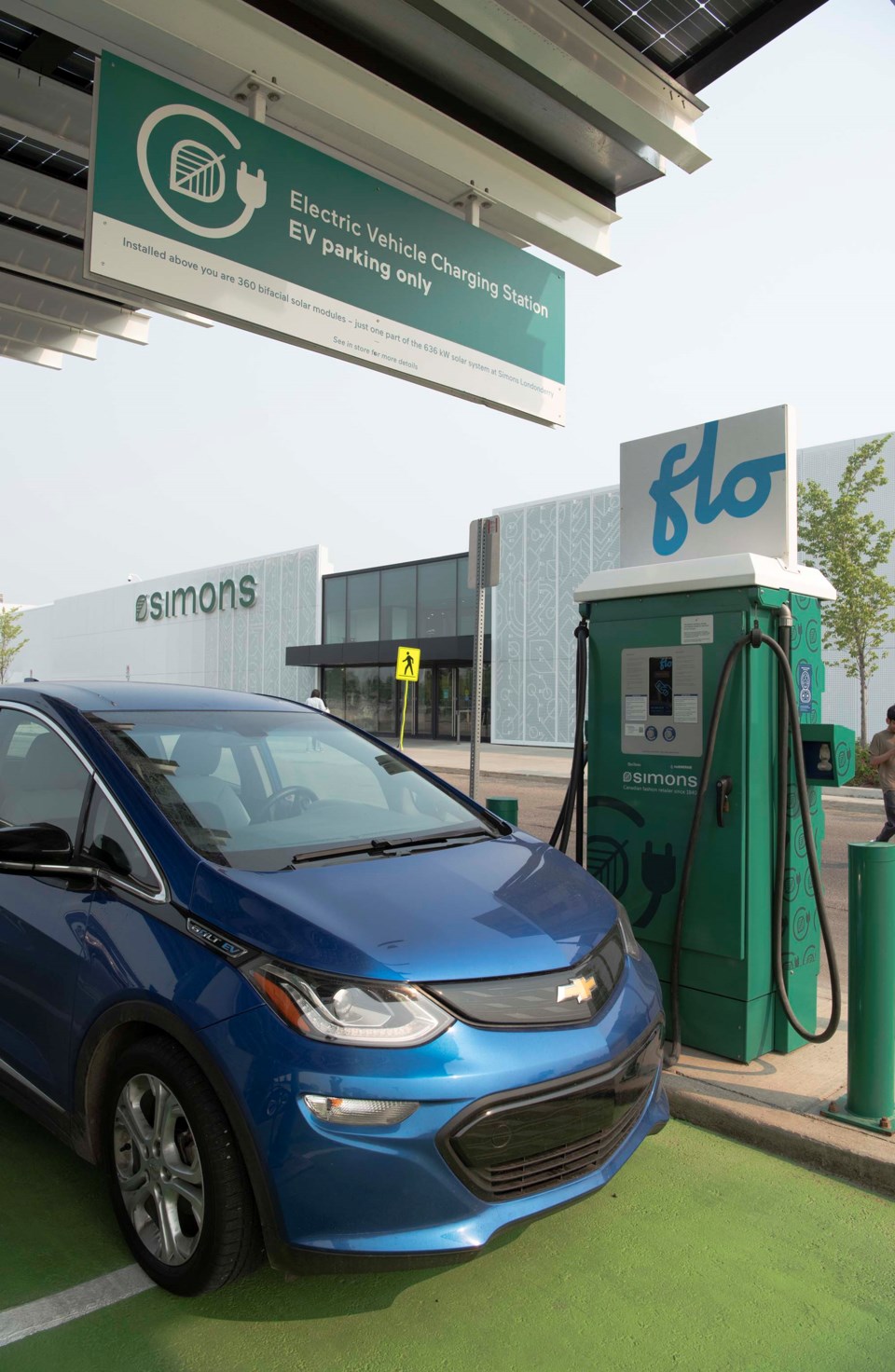Electric cars can save Canadians thousands of dollars over their lifetime even without today’s sky-high gas prices, a new study suggests.
Clean Energy Canada (a non-profit based out of B.C.’s Simon Fraser University) published a study March 31 on the cost of owning electric cars in Canada.
The study compared six popular electric vehicles available in Canada with equivalent gasoline ones and calculated what owners would pay per kilometre for fuel, maintenance, insurance, taxes, and depreciation assuming eight years of ownership, 20,000 kilometres of driving a year, average federal and provincial rebates, and the average 2021 national gas price of $1.35/L.
“In every single instance, the electric car was significantly cheaper,” said Joanna Kyriazis, policy advisor with Clean Energy Canada, often saving owners $15,000 to $19,000 over eight years.
The study found a 2022 Chevy Bolt cost about 33 cents per kilometre to drive, for example, or 37-per-cent less than an equivalent 2022 Toyota Corolla hatchback. A gas-powered 2022 Hyundai Kona cost 44 cents per kilometre to run, or 27-per-cent more than an electric Kona.
Cheaper at the pump
“A big source of the savings is in terms of fuelling,” Kyriazis said — it costs $5 to $13 to fully charge a Chevy Bolt ($10.40 in Alberta), compared to about $80 to $90 to fill a typical gas tank.
St. Albert car collector Art Rutledge owns a Tesla Model S and a plug-in hybrid BMW i3. It costs him about four cents per kilometre to charge them at home, compared to about 16.5 cents per kilometre for an equivalent 10L/100 km gas vehicle. Using Tesla’s free charging network, he recently drove his Model S to San Diego and back for about $22.
“It would have been over $4,000 in my truck,” he said.
“It’s a huge difference.”
The study found electric vehicles also had significantly lower maintenance costs — about eight cents per kilometre for the electric Kona, compared to 15 for the gas one, for example. Rutledge said he bought his Model S back in 2015 and has spent basically nothing on maintenance for it.
Rutledge said he has been fielding a lot more questions lately from people about electric cars, and has seen people he thought would never go electric lining up to buy them.
“All of a sudden, with the cost of fuel, everyone’s paying attention.”
Inflation, the invasion of Ukraine, and other factors all caused gas prices to soar in early 2022, with prices in St. Albert hovering around $1.60/L in late March. A March 18 poll by KPMG found that rising gas prices had convinced 61 per cent of Canadians that it was time to buy an electric vehicle, with 51 per cent saying they would never buy a gas-powered car again.
Still not common
Just 3,527 of Alberta’s registered vehicles (about 0.1 per cent) were electric as of 2021, the provincial government reports.
Kyriazis called for provincial rebates to reduce the higher up-front costs of electric cars and get more of them on the road. Last week, the federal government committed $1.7 billion over three years toward electric car rebates as part of its 2030 emissions reduction plan.
Canada also has a shortage of electric vehicles for sale, with six- to 12-month wait-lists for popular models, Kyriazis said. Upcoming federal sales mandates (which will require 20 per cent of all cars sold in Canada by 2026 to be zero-emission ones) should draw more supply to Canada and encourage car companies to bring more models to market.
Transportation is the second biggest source of Canada’s greenhouse-gas emissions, Kyriazis said. Canadians can shrink this source and slow global heating by riding bikes, taking the bus, and driving electric cars.
“No matter which provincial grid you plug into, electric vehicles produce significantly less carbon emission than gas cars do,” she noted.
Rutledge said electric vehicles aren’t for people who must drive to Fort McMurray all the time, but if most of your driving is around town, they’re a slam dunk, with a cheap Nissan Leaf having more than enough range for most urban drivers. He advised buyers to figure out how much range they actually need before shopping for an electric car, and to look into used vehicles.
The study is available at bit.ly/36LPvNf.



